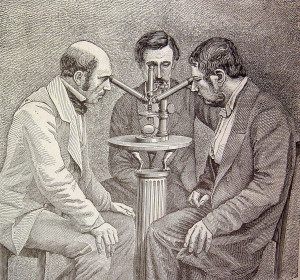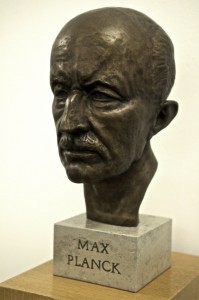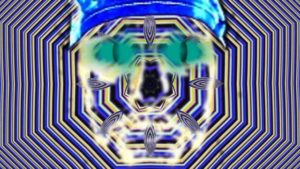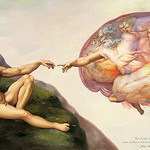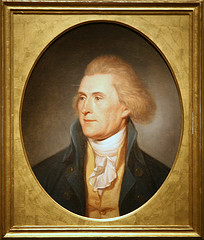 The most transformational book I ever have read is The Secret Life of Plants by Peter Tompkins and Christopher Bird. I first read it in 1973, and I didn’t realize until much later the way that book formed a basis for my later afterlife research. It opened my eyes to a deeper awareness that nothing is as it seems; it primed me to later accept the evidence that what we experience as human consciousness is primary; and the fact that something so fundamental has been steadfastly ignored by mainstream scientists because it doesn’t fit their narrative was my first clue that the mainstream science emperor is indeed buck nekkid!
The most transformational book I ever have read is The Secret Life of Plants by Peter Tompkins and Christopher Bird. I first read it in 1973, and I didn’t realize until much later the way that book formed a basis for my later afterlife research. It opened my eyes to a deeper awareness that nothing is as it seems; it primed me to later accept the evidence that what we experience as human consciousness is primary; and the fact that something so fundamental has been steadfastly ignored by mainstream scientists because it doesn’t fit their narrative was my first clue that the mainstream science emperor is indeed buck nekkid!
That book’s core insight from my perspective was that plants are conscious, and they can communicate. What a revelation! Consider only the work of Cleve Backster, then America’s foremost expert on lie detectors, who one morning in 1966 decided to use his office plant as an experimental subject. He attached to one of its leaves a galvanometer, the part of a polygraph machine which registers human emotions, and he found that the plant was reacting very much as a person would react who was having transient thoughts. He soon found that the most extreme reactions in the plant were produced when he decided to burn one of its leaves; the reaction was less if he only imagined burning the leaf, or even if he actually burned it. His plant would react, too, if other living things in the room were credibly threatened with harm; and Backster and other researchers later demonstrated that these reactions are present even in living fragments of plants. My goodness, plants can read the minds of their keepers from a distance of miles away! There is so much more to Backster’s work that mainstream science still ignores. These amazing revelations are more than fifty years old, and they are all by themselves sufficient reason for you to read one of the most amazing and most unjustly ignored books in history.
of Cleve Backster, then America’s foremost expert on lie detectors, who one morning in 1966 decided to use his office plant as an experimental subject. He attached to one of its leaves a galvanometer, the part of a polygraph machine which registers human emotions, and he found that the plant was reacting very much as a person would react who was having transient thoughts. He soon found that the most extreme reactions in the plant were produced when he decided to burn one of its leaves; the reaction was less if he only imagined burning the leaf, or even if he actually burned it. His plant would react, too, if other living things in the room were credibly threatened with harm; and Backster and other researchers later demonstrated that these reactions are present even in living fragments of plants. My goodness, plants can read the minds of their keepers from a distance of miles away! There is so much more to Backster’s work that mainstream science still ignores. These amazing revelations are more than fifty years old, and they are all by themselves sufficient reason for you to read one of the most amazing and most unjustly ignored books in history.
 This discovery that plants are in some way conscious still fills me with wonder. It formed a basis for my growing, research-based awareness that what we experience as consciousness must be primary. There is no other explanation that fits all the evidence! So when in 2011 I read the ultimate quantum-physics-for-dummies book, Quantum Enigma by Bruce Rosenblum and Fred Kuttner, and I found that the greatest of all quantum physicists had decades before reached the same conclusion, I had a joyous eureka moment. As quantum physicist Max Planck famously said, ”I regard consciousness as fundamental. I regard matter as derivative from consciousness. We cannot get behind consciousness. Everything that we talk about, everything that we regard as existing, postulates consciousness.”
This discovery that plants are in some way conscious still fills me with wonder. It formed a basis for my growing, research-based awareness that what we experience as consciousness must be primary. There is no other explanation that fits all the evidence! So when in 2011 I read the ultimate quantum-physics-for-dummies book, Quantum Enigma by Bruce Rosenblum and Fred Kuttner, and I found that the greatest of all quantum physicists had decades before reached the same conclusion, I had a joyous eureka moment. As quantum physicist Max Planck famously said, ”I regard consciousness as fundamental. I regard matter as derivative from consciousness. We cannot get behind consciousness. Everything that we talk about, everything that we regard as existing, postulates consciousness.”
All of this came to mind again when I was reading last month’s Smithsonian magazine,  and I came across an amazing article called “Do Trees Talk to Each other?” Well, of course they do! Peter Wohlleben is a German researcher now popularly known as the “Tree Whisperer” whose book, The Hidden Life of Trees, is available in English. Please read the article, since I cannot here conceivably do it justice. I only can tell you that after you have read it, you will forever after see each forest as a thriving community of sentient individuals in communication with one another, caring for their young, even caring for their old and for the stumps of those felled by people; caring, too, for other benevolent creatures, and fighting off the ones that mean to do them harm. You will never look at any plant of any size in the same way again!
and I came across an amazing article called “Do Trees Talk to Each other?” Well, of course they do! Peter Wohlleben is a German researcher now popularly known as the “Tree Whisperer” whose book, The Hidden Life of Trees, is available in English. Please read the article, since I cannot here conceivably do it justice. I only can tell you that after you have read it, you will forever after see each forest as a thriving community of sentient individuals in communication with one another, caring for their young, even caring for their old and for the stumps of those felled by people; caring, too, for other benevolent creatures, and fighting off the ones that mean to do them harm. You will never look at any plant of any size in the same way again!
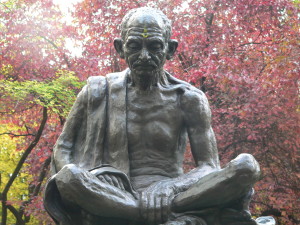 What we experience as human consciousness is the base creative force. It is all that objectively exists! So it shouldn’t really surprise us to find that every living thing is conscious; and in fact, that may be true of even what we consider to be non-living things. If consciousness is the base creative force, then perhaps even rocks might somehow be conscious? One of the things we generally do when we first return to our eternal home is sightseeing, even on other planets. I recall reading an account by someone who had been enjoying doing his post-death touring, and he talked about a planet where the life was not carbon-based, but instead was silica-based. That entire planet teemed with life! But you didn’t realize that at first, because it all moved ve-e-e-ry sl-o-o-o-wly. You know, come to think of it, the rocks on this planet are moving pretty slowly, too….
What we experience as human consciousness is the base creative force. It is all that objectively exists! So it shouldn’t really surprise us to find that every living thing is conscious; and in fact, that may be true of even what we consider to be non-living things. If consciousness is the base creative force, then perhaps even rocks might somehow be conscious? One of the things we generally do when we first return to our eternal home is sightseeing, even on other planets. I recall reading an account by someone who had been enjoying doing his post-death touring, and he talked about a planet where the life was not carbon-based, but instead was silica-based. That entire planet teemed with life! But you didn’t realize that at first, because it all moved ve-e-e-ry sl-o-o-o-wly. You know, come to think of it, the rocks on this planet are moving pretty slowly, too….
More and more, it is becoming clear that accepting Max Planck’s genius insight that consciousness is primary is going to be essential if scientists are ever to end their century-long materialist muddle and again begin to do productive research. A Nobel Prize awaits the first open-minded physicist who is brave enough to finally and forever remove his own materialist chains!
consciousness is primary is going to be essential if scientists are ever to end their century-long materialist muddle and again begin to do productive research. A Nobel Prize awaits the first open-minded physicist who is brave enough to finally and forever remove his own materialist chains!







